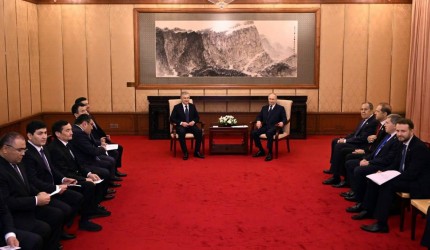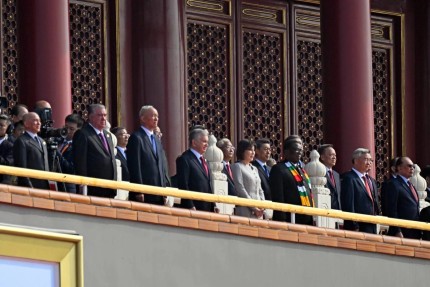President Shavkat Mirziyoyev on April 10 decreed to create an Uzbekistan’s Supreme Judicial Council, a new institution introduced by recent amendments to the Constitution.
The Supreme Judicial Council is a body of the judicial community which assists in ensuring abiding by the constitutional principle of independence of the judiciary branch in Uzbekistan.
By the March 29 Resolution of the Senate, Maruf Usmonov has been appointed as chairman of the Supreme Judicial Council.
By the Presidential decree, Dilshod Aripov has been appointed as the deputy chairman of the Council and director of the Research Center for Justice Problems under the Council (on a voluntary basis), Karomatjon Davletova as the secretary of the council (on a permanent basis).
Members of the Supreme Judicial Council on a permanent basis - judges of the Supreme Judicial Council are:
• Shukhrat Abbasov;
• Sherzod Abduqodirov;
• Jasuriddin Abdusattarov;
• Muzaffar Akhmedov;
• Tolib Bayzakov;
• Rakhmatulla Gulomov;
• Sanjar Dusmanov;
• Ikhtiyar Matmuratov;
• Odil Normahmatov;
• Sarvar Soliev;
• Mirvosit Usmonov.
The members on a voluntary basis:
• Salom Samadov - Deputy State Adviser to the President on Political and Legal Issues;
• Jamilya Niyazova - Member of the Legislative Chamber;
• Ubaydulla Mingbaev - First deputy chairman of the Association of Judges of Uzbekistan, chairman of the Public Center for Social Support of Veterans of the Judicial System;
• Omanbai Okulyov - Head of the Tashkent University of Law;
• Islamjan Ergashojaev - Deputy Prosecutor General of Uzbekistan;
• Akramkhon Bobokhonov - Deputy Minister of Internal Affairs - Head of the Main Investigation Department;
• Khamdam Karshiev - Deputy Minister of Justice - Director of the Department for Enactment of Judicial Decisions, Material-Technical and Financial Support of Courts.
In line with the law signed by the President on April 6, the Council’s main functions are the formation of the judiciary personnel, prevention of violation of the judicial immunity and interference in their activities related to delivering of justice, organization of training and advanced training of judges, handling of letters from natural and legal persons in relation to observance by judges of Rules of ethical conduct, preparation of proposals for improving legislation, and others.















